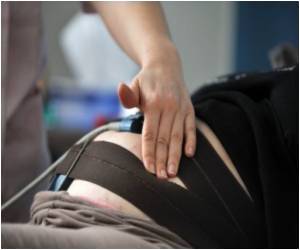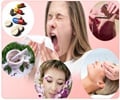Exposure to worm infections in the womb may protect a newborn infant from developing eczema, a study funded by the Wellcome Trust suggests.

The World Health Organisation estimates that one in five of the world's population suffers from allergic diseases such as asthma and eczema, but this epidemic is no longer restricted to developed countries: more than four out of five deaths due to asthma occur in low and lower-middle income countries. The declining incidence and prevalence of infectious diseases – including chronic infection by worms known as helminths – is widely considered to be an important contributor contributing to this increase.
Helminth infection can cause symptoms ranging from mild anaemia through to stomach pain and vomiting, depending on how intense the infection is, but very often people have no symptoms at all. The parasitic worms tend to enter the body through contaminated food or water, mosquito bites or through walking in bare feet on contaminated soil.
A preliminary study carried out at the MRC/UVRI Uganda Research Unit on AIDS in Entebbe, Uganda in 2005 showed a reduced risk of eczema among infants whose mothers had worms and suggested an increased incidence among infants of mothers who received albendazole – a commonly used drug to treat worm infection – during pregnancy compared to infants whose mothers received a placebo.
In a follow-up study, researchers carried out a randomised, double-blind trial on 2,507 pregnant women in Uganda, comparing those treated with either albendazole or a second drug, praziquantel, against those administered a placebo, and looking at how this affected their offspring's risk of developing eczema.
Harriet Mpairwe, first author of the new study, says: "Worm infections can adversely affect a person's health, but the evidence also suggests that exposure to infection early in a child's life can have a beneficial effect in terms of modifying its immune system and protecting against allergies. We wanted to examine in a large cohort what effect de-worming women during pregnancy has on their offspring."
Advertisement
The findings support the hypothesis that maternal worms during pregnancy, neonatal life and early breastfeeding, may protect against allergy in infancy and that treatment of these worms during pregnancy increases the risk of allergy.
Advertisement
"The findings certainly support the so-called 'hygiene hypothesis'. What will be important for the eczema story will be to see whether there are long term effects on allergy, especially asthma, at school age. Our next step is to investigate this further."
Source-Eurekalert















